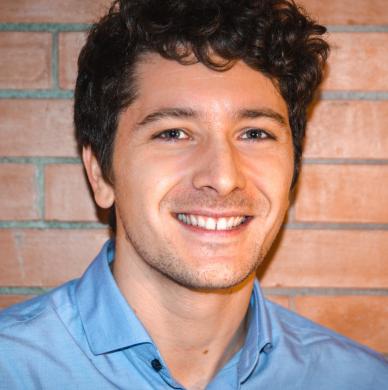
Assistant Professor
BioRobotics Institute
Lorenzo Vannozzi
Bio
Lorenzo Vannozzi is an Assistant Professor at the BioRobotics Institute of Scuola Superiore Sant’Anna in Pisa. He received his Master’s Degree in Biomedical Engineering (110/110 cum laude) from University of Pisa.
In 2013, he started his PhD program within the “Surgical Robotics and Allied Technologies” laboratory at the BioRobotics Institute of Scuola Superiore Sant’Anna (SSSA), in the group led by Prof.ssa Arianna Menciassi, having as PhD supervisor Prof. Leonardo Ricotti. In this period, he joined the Max Planck Institute for Intelligent Systems, Physical Intelligence Department (Stuttgart, Germany) for a visiting period of 8 months under the supervision of Prof. Metin Sitti. In 2017, he obtained his PhD degree in BioRobotics (with honors) from the Scuola Superiore Sant’Anna. In 2019, he started collaborating with the “Regenerative Technologies” laboratory under the supervision of Prof. Leonardo Ricotti. Since March 2022, he has the role of Assistant Professor (RTD-A). In February 2023, he obtained the Italian Qualification for the profession of Associate Professor of Bioengineering (Abilitazione scientifica nazionale, Professore di II fascia, settore disciplinare 09/G2).
Research
Lorenzo Vannozzi’s research focuses on the design and development of biomaterials for tissue engineering, with particular emphasis on their integration with advanced biofabrication methods to support tissue growth, maturation, and repair. His work is strongly interdisciplinary and curiosity-driven, bridging materials science, tissue engineering, biofabrication, molecular biology, mechatronics, and nanotechnology.
During his PhD, he concentrated on skeletal muscle tissue engineering, exploring strategies ranging from 2D culture systems to 3D biofabricated constructs. He investigated biomaterials compatible with diverse biofabrication techniques to create tissues with controlled architectures and potential applications as biohybrid actuators. In parallel, he developed ultrathin-film–based platforms for directional drug delivery, achieving controlled release of therapeutic molecules.
As a postdoctoral researcher, he further advanced muscle tissue engineering and biohybrid actuators, while expanding his interests to composite biomaterials and regenerative medicine. Within the ADMAIORA project, he worked on articular cartilage tissue engineering, evaluating biomaterials to promote stem cell chondrogenesis and integration with host tissue. In the same period, he also served as project manager for the ALA project, dedicated to developing innovative automation technologies for anatomic pathology.
Currently, as an Assistant Professor, he continues his work in cartilage tissue engineering following the conclusion of ADMAIORA (2024) and advances skeletal muscle research within the MioPRO and MioPRO2 projects, which focus on developing peripheral nerve interfaces based on engineered muscle tissue. He is also an active partner in the BioMeld project on biohybrid machines, strengthening collaborations with internationally recognized leaders in the field. In parallel, he explores additive manufacturing for engineered tissues and recently opened a new research line on biodegradable piezoelectric nanomaterials.
